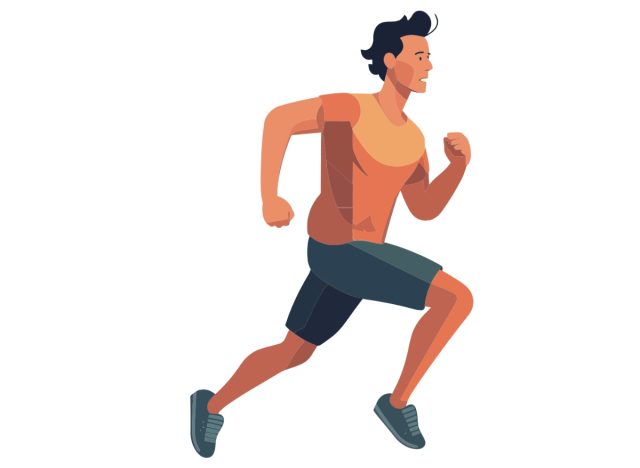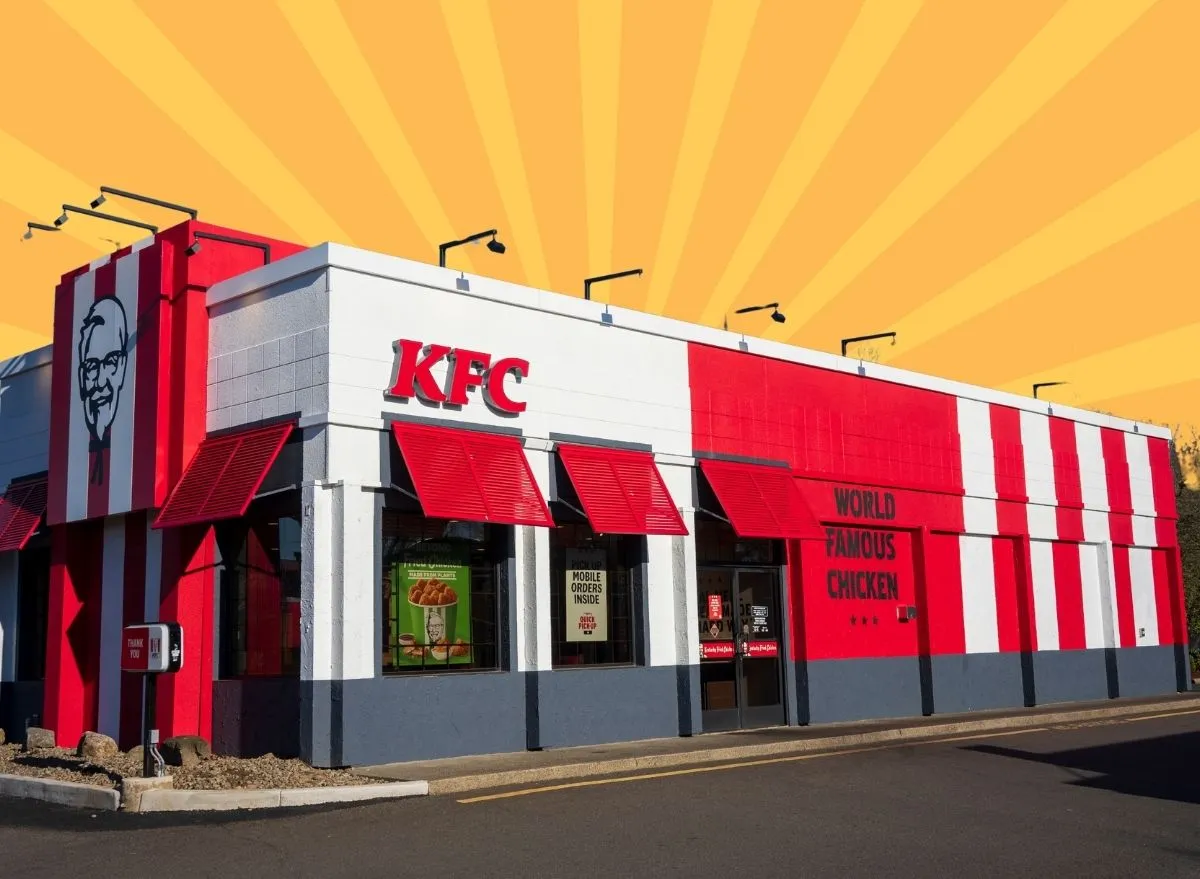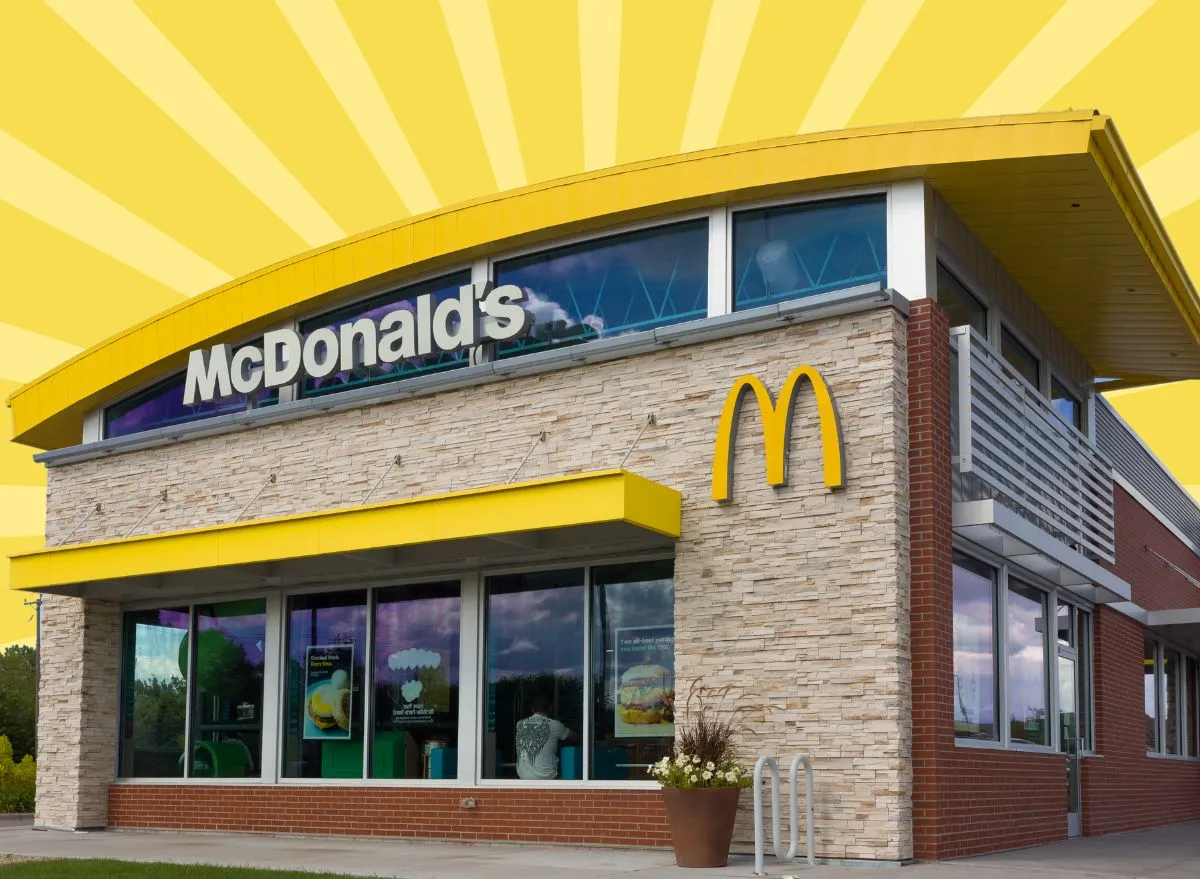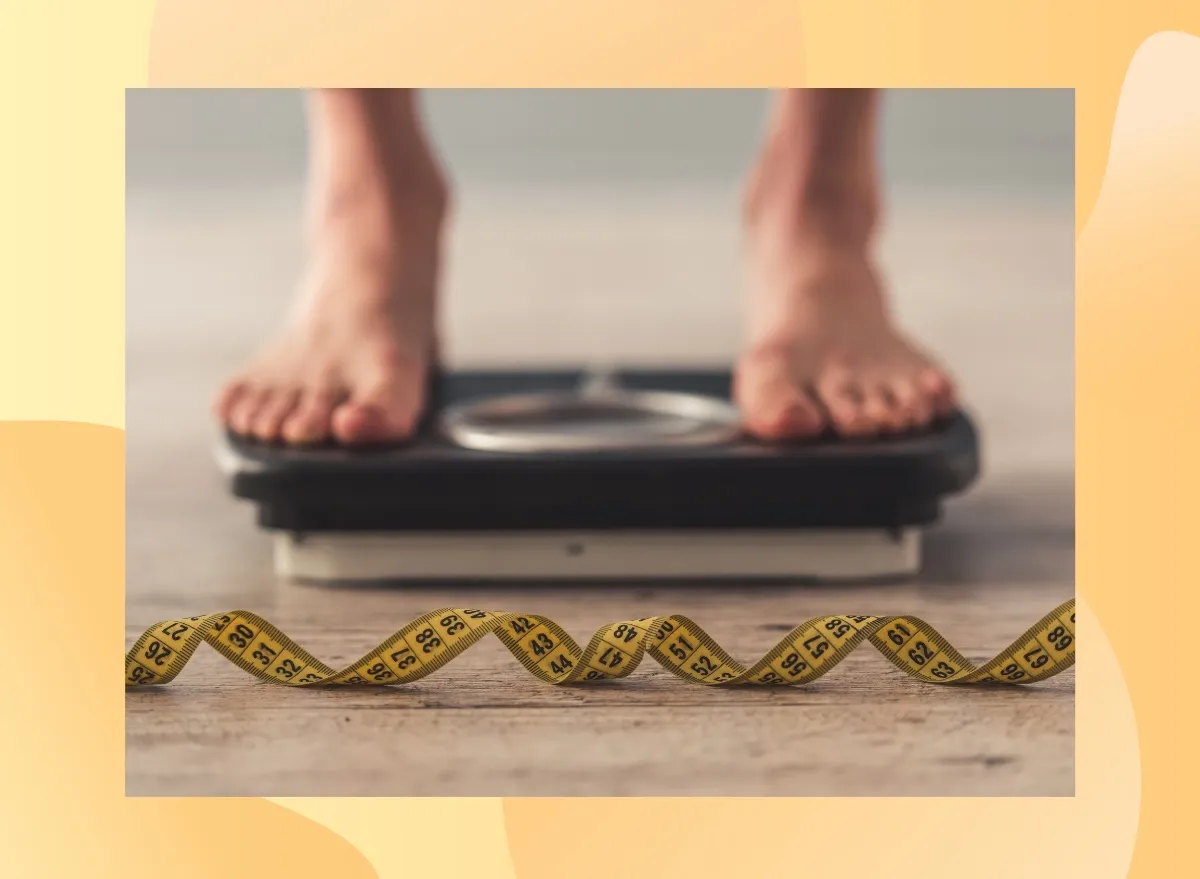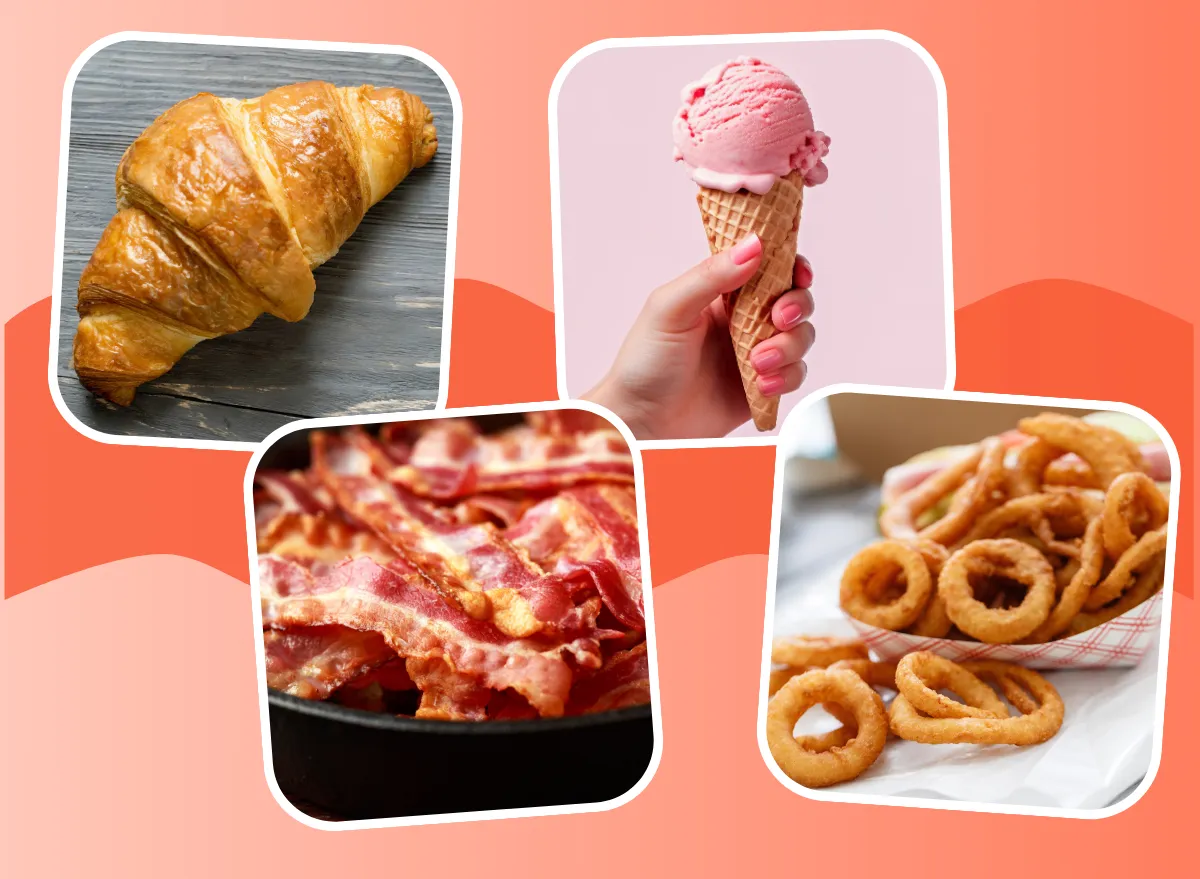Weight loss tips are everywhere. With blogs, articles, research, YouTube videos, and various Instagram accounts, we always have weight loss advice at our fingertips. However, some of this advice can be toxic and harmful to our health.
There are many people sharing weight-loss advice that can actually damage our health over time and lead to unhealthy aging. To learn more about which pieces of advice to avoid, we talked with a few expert dietitians. Here’s what they have to say about weight loss tips that are actually aging your body, and for more healthy eating tips check out 22 Tips to Lose Belly Fat Without Dieting.
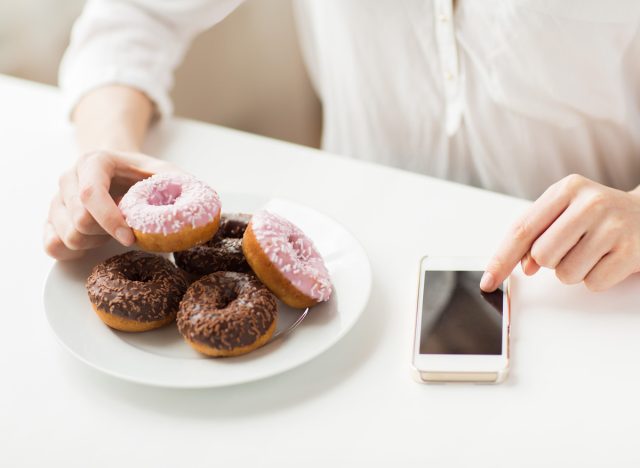

Counting calories may be helpful for some, but making sure you’re consuming a well-balanced diet is more important.
“One of the more harmful behaviors I see in the nutrition field is people counting their calories with a large portion of their food still being processed and low-quality, without consuming enough omega-3 fatty acids, unsaturated fats, and fibrous foods. Consuming meals that are packed with necessary nutrients will not only ease the weight loss process but also support longevity,” says registered dietitian Whitney Stuart, MS, RDN, CDE.
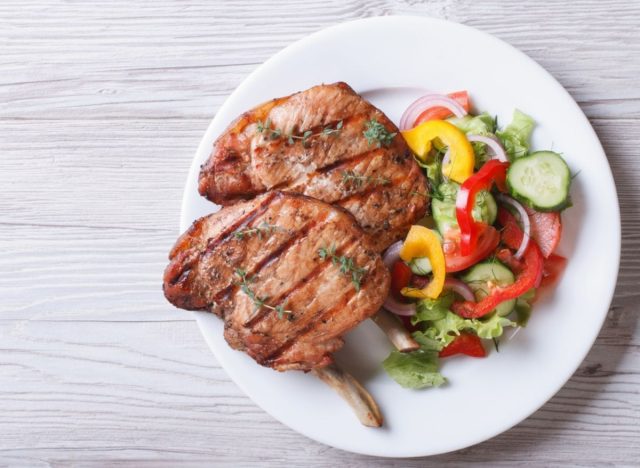

While you may think that calories are all that matters, if you’re not getting enough protein then you’re most likely setting yourself up for failure. Not only that, but it may affect your aging process as well.
“A huge weight loss mistake [that ages] you faster is to only focus on creating a calorie deficit without paying attention to the composition of those calories. It’s essential to consume higher levels of protein when losing weight in an attempt to preserve more lean body mass,” says Lauren Harris-Pincus, MS, RDN, registered dietitian, founder of Nutrition Starring YOU, and author of The Everything Easy Pre-Diabetes Cookbook.
“You lose fat and muscle when dieting, and less muscle will decrease your metabolism and strength, as well as potentially cause bone loss. Aim for at least 25-30 grams of protein per meal with moderate amounts of whole grains and higher-fiber plant foods, as well as heart-healthy fats for the best outcome that’s likely more sustainable as well,” says Harris-Pincus.
READ RELATED: DON'T panic about Covid's resurgence: Experts say virus was bound to bounce back
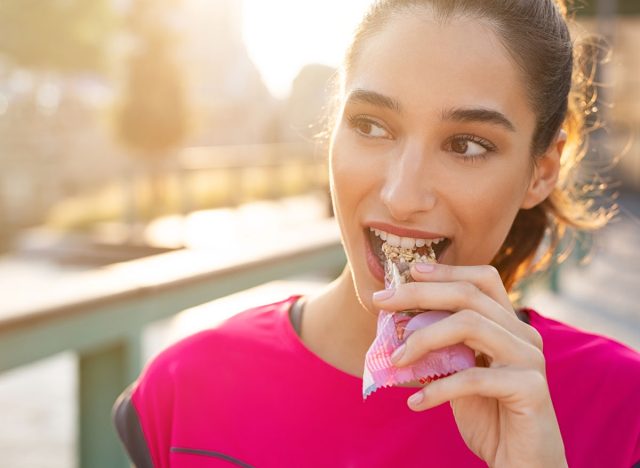

Meal replacements can be harmful not only to sustainable weight loss but to your overall health as well.
“While meal replacement products such as shakes or bars may be helpful for an occasional low-calorie meal or snack on the go, many of these products are highly processed and contain added sugars. Eating highly processed foods regularly has been linked to multiple chronic diseases, and too much sugar can also contribute to chronic disease development and hasten the aging process by forming advanced glycation end products (AGEs),” says Sara Chatfield, MPH, RDN, a registered dietitian at Health Canal.
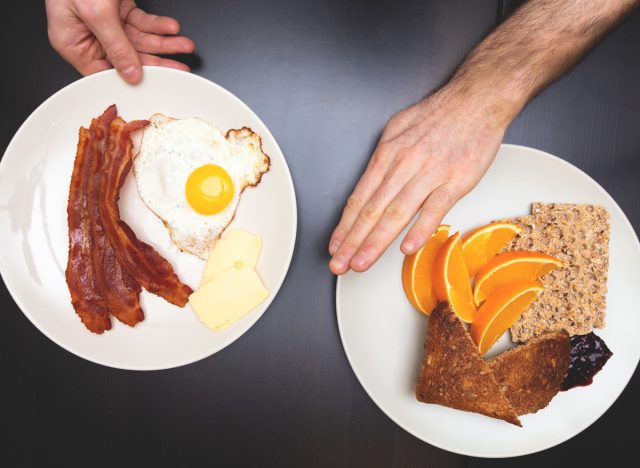

Diets like the Atkins Diet and the Keto Diet have made it seem as though carbs are the enemy. However, this simply isn’t true.
“While avoiding added sugars and refined carbs is helpful for weight loss, cutting out complex carbs such as fresh fruit, starchy vegetables, and whole grains may derail weight loss efforts and can even contribute to premature aging since these foods are valuable sources of fiber and other vital nutrients. High fiber intake has been linked to satiety at meals and successful weight loss, and also to reduced markers of aging,” says Chatfield.
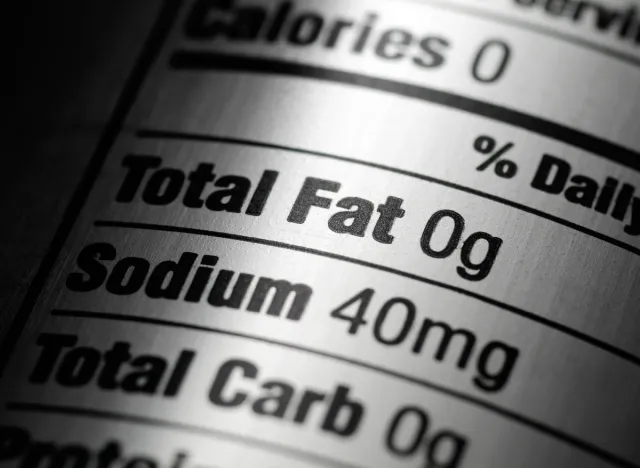

You don’t have to avoid fat in order to lose weight. In fact, your body needs healthy fats to survive.
“While fat calories are higher (1 gram fat = 9 calories) compared to carbs or protein (1 gram of carbs or protein = 4 calories), we do need some fat for our overall health and wellbeing. Heart-healthy fats such as those found in nuts, seeds, avocado, extra virgin olive oil, or salmon provide benefits for heart health, brain health, and also add to the flavor and satisfaction of meals,” says Vandana Sheth, RDN, CDCES, FAND, a registered dietitian and author of My Indian Table: Quick & Tasty Vegetarian Recipes.
Source:




